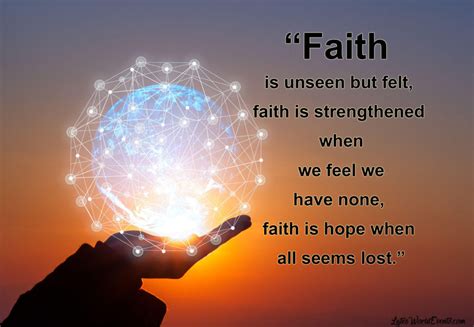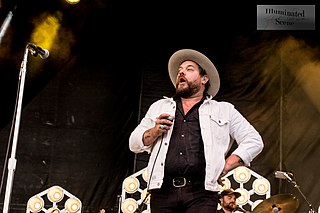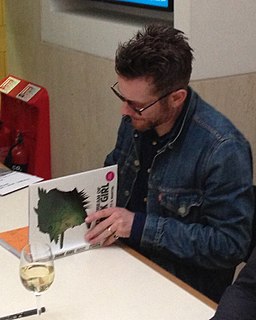A Quote by Rodney Crowell
I will say this: I've always sort of had maybe an inflated sense of my ability to sequence songs in a narrative flow.
Related Quotes
We don't really know how technology will affect narrative. That's the question. See, people used to say that the novel is going to die, but they would never say that movies will die with it, when in fact all forms depend on the narrative. I think if one of them fails, the others are going to fail as well. Maybe this will happen to both forms, and maybe movies will take a totally different direction with fiction.
Abstraction didn't have to be limited to a kind of rectilinear geometry or even a simple curve geometry. It could have a geometry that had a narrative impact. In other words, you could tell a story with the shapes. It wouldn't be a literal story, but the shapes and the interaction of the shapes and colors would give you a narrative sense. You could have a sense of an abstract piece flowing along and being part of an action or activity. That sort of turned me on.
Now, we're used to thinking of communism as being once-upon-a-time-all-things-were-owned-in-common, maybe-someday-this-will-come-again. And people agree that there is a sort of epic narrative going on here. I think we should just throw this narrative out, it's irrelevant anyway, and who cares who owns things? I don't. You know, we all own the White House. So what? I still can't go in, right?
Some people's lives seem to flow in a narrative; mine had many stops and starts. That's what trauma does. It interrupts the plot. You can't process it because it doesn't fit with what came before or what comes afterward. A friend of mine, a soldier, put it this way. In most of our lives, most of the time, you have a sense of what is to come. There is a steady narrative, a feeling of "lights, camera, action" when big events are imminent. But trauma isn't like that. It just happens, and then life goes on. No one prepares you for it.
But there are times in life when a door opens and you are offered a glimpse of the light on the water, and you know that if you don't take it, that door slams shut, and maybe forever. Maybe you fool yourself into thinking that you had a choice at all; maybe you were always going to say yes. Maybe refusing was no more a choice than is holding your breath. You were always going to breathe. You were always going to say yes.
Maybe, generations ago, young people rebelled out of some clear motive, but now, we know we're rebelling. Between teen movies and sex-ed textbooks we're so ready for our rebellious phase we can't help but feel it's safe, contained. It will turn out all right, despite the risk, snug in the shell of rebellion narrative. Rebellion narrative, does that make sense? It was appropriate to do, so we did it.



































